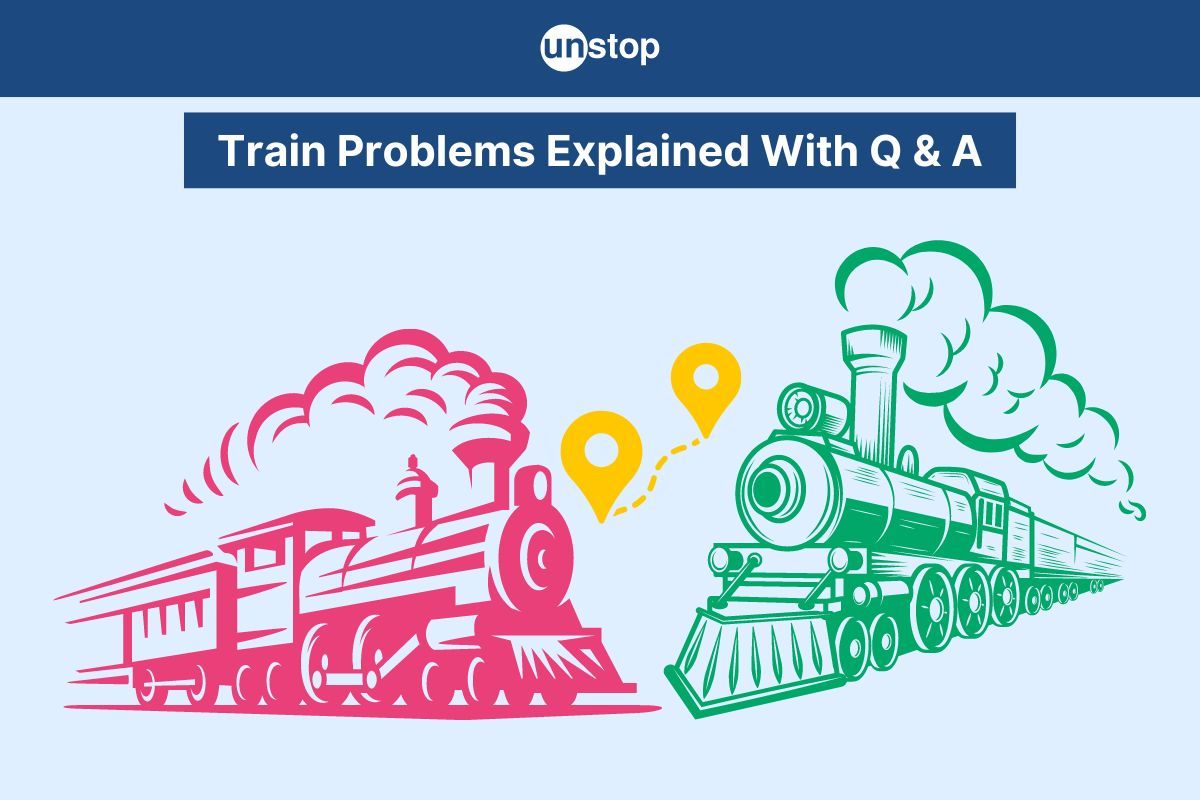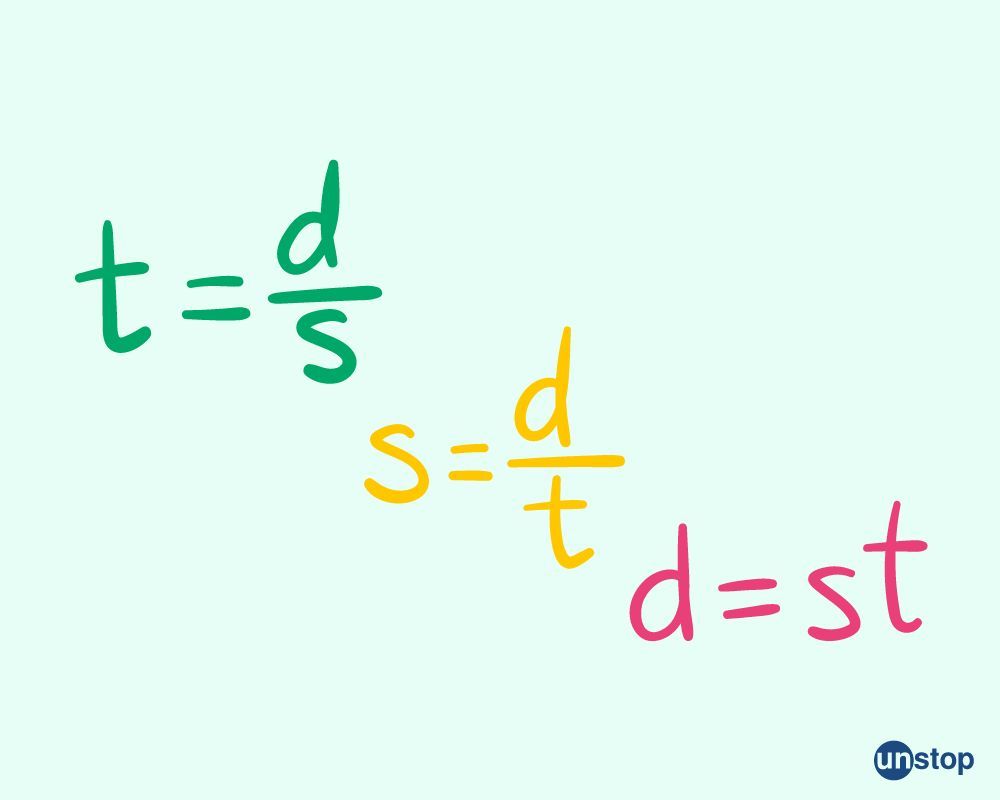- Step 1: The Groundwork
- Step 2: The Three Sections
- Step 3: Practice Makes Improvement
- The Secret Ingredient
- Understanding Basics Of Number Series
- Types Of Number Series Reasoning Questions
- Addition & Multiplication In Number Series
- Square & Cube-Based Number Series Patterns
- Missing Terms & Arranging Sequences
- Tricks & Tips For Solving Number Series
- Selected Number Series Questions With Solutions
- Frequently Asked Questions (FAQs)
- Must Know Terminologies in Blood Relation Questions
- Basic Approaches to Solve Blood Relation Questions
- Types Of Blood Relation Questions
- Tips For Solving Blood Relation Questions
- Multiple Choice Questions (MCQs) with Detailed Explanation
- Conclusion
- Frequently Asked Questions (FAQs)
- Letter Series In Logical Reasoning
- Types Of Letter Series Patterns
- Tips For Solving Letter Series Reasoning
- Best Practice Question Samples With Answers
- Conclusion
- Frequently Asked Questions (FAQs)
- Basics of Problems On Age-Related Questions
- Formula to Solve Problems on Ages-Related Questions
- Types of Age-Related Questions & Examples
- Tips & Tricks for Solving Ages Problems
- Best MCQs on Problems on ages with solved answers
- Conclusion
- Frequently Asked Questions (FAQs)
- Definition of Calendar
- Understanding Days of the Week
- What is a Leap Year?
- Concept of Odd Days in a Century
- Tips For Solving Calendar Reasoning Questions
- Best Calendar Reasoning Questions with Answers (MCQs)
- Frequently Asked Questions (FAQs)
- Basic Concepts of Clock
- Structure of a Clock
- Angle Equilavalence in Clock
- Tips For Solving Clock Questions
- Selected Clock Questions & Answers (MCQs)
- Conclusion
- Frequently Asked Questions (FAQs)
- Understanding The Concept Of Direction Sense
- Tips For Effective Problem-Solving In Direction Sense
- Practical Test Practice Questions And Answers
- Conclusion
- Frequently Asked Questions (FAQs)
- Importance Of Dice Reasoning
- Dice Numbers In Dice Reasoning
- Classification Of Dice
- Constructed Vs Deconstructed Dice
- Tricks & Tips For Solving Dice Problems
- Practice MCQs With Detailed Answers
- Conclusion
- Frequently Asked Questions (FAQs)
- Alphanumeric Series Defined
- Alphanumeric Series In Reasoning Tests
- Tips & Strategies For Solving Alphanumeric Series
- Practice Sample Questions With Detailed Answers
- Conclusion
- Frequently Asked Questions (FAQs)
- Concept Of Mirror Image Reasoning Explained
- Important Terms In Mirror Image Reasoning
- Types Of Mirror Images
- Identifying Correct Mirror Image
- Finding Clock's Mirror Image
- Tips To Solve Mirror Images
- Selected Practice Questions With Answers
- Conclusion
- Frequently Asked Questions (FAQs)
- Concept & Overview Of Input-Output
- Input-Output In Competitive Exams
- Types Of Input-Output Problems
- Strategies, Tips & Tricks For Solving Reasoning Questions
- Selected Practice Questions With Answers
- Conclusion
- Frequently Asked Questions (FAQs)
- Importance Of Finding The Odd One Out
- Tricks And Tips
- How to Find The Odd One Out?
- Solved MCQs with Detailed Explanation
- Conclusion
- Frequently Asked Questions (FAQs)
- Understanding Key Concepts
- Exploring Different Ranking Types
- Formula And Application Of Order And Ranking
- Tips For Solving Order & Ranking
- Selected Practice Questions And Answers
- Conclusion
- Frequently Asked Questions (FAQs)
- Importance Of Pipes & Cistern Aptitude
- Key Terminologies used in Pipes and Cisterns
- Pipes and Cisterns Formula with Examples
- Pipes and Cisterns Shortcut Tricks
- Tips For Solving Pipes & Cistern Problems
- Selected Questions & Answers For Practice (MCQs)
- Conclusion
- Frequently Asked Questions (FAQs)
- Key Concept in Boats and Streams
- Formulas Of Boats & Streams
- Distance & Time Formula
- Tips For Solving Boats & Streams Questions
- Selected Practice Questions With Answers (MCQs)
- Conclusion
- Frequently Asked Questions (FAQs)
- Concept of Mixture and Alligation
- Types Of Alligation Questions
- Formula for Solving Mixture & Alligation
- Tips For Solving Mixture And Alligation
- Selected Questions With Answers For Practice
- Conclusion
- Frequently Asked Questions (FAQs)
- Concepts and Definitions Related to Time and Work
- Important Time And Work Formulas
- Tricks and Tips to Solve Time & Work Questions
- Time And Work MCQs with Detailed Solution
- Conclusion
- Frequently Asked Questions (FAQs)
- What is Harmonic Progression(HP)?
- Formula to find the nth Term in Harmonic Progression
- Formula to find the Sum of the nth Term in HP
- What is Harmonic Mean?
- Harmonic Progression Solved Best MCQs
- Conclusion
- Frequently Asked Questions (FAQs)
- What is Mensuration in Maths?
- What are 2D figures in Mensuration?
- What are 3D figures in Mensuartion?
- Basic Terminologies In Mensuration
- Basic 2D Formulas in Mensuration
- Basic 3D Formulas in Mensuration
- 2D vs 3D in Mensuration
- Solved Questions With Solutions (MCQs)
- Conclusion
- Frequently Asked Questions (FAQs)
- Relationship Between Time, Speed And Distance
- Conversion Units Time, Speed And Distance
- Average & Relative Speed: Two Trains Moving in the same or opposite direction
- Solved MCQs on Time, Speed And Distance
- Conclusion
- Frequently Asked Questions (FAQs)
- What is Simplification in Maths?
- BODMAS Rule in Simplification Explained
- Simplification & Approximation Relation
- Key Terms in Simplification
- Examples Of Simplification Techniques
- Simplification Questions With Solved Answers (MCQs)
- Conclusion
- Frequently Asked Questions (FAQs)
- Height And Distance Important Terms
- Right Angled Triangle In Trigonometry
- Trigonometric Ratios
- Solved Examples For Better Understanding
- Height And Distance Applications In Trigonometry
- Height And Distance Practice Questions & Answers
- Conclusion
- Frequently Asked Questions (FAQs)
- Defining Interest Types
- Simple Interest Vs. Compound Interest
- Selected Solved Questions & Answers
- Conclusion
- Frequently Asked Questions (FAQs)
- Basic Concepts Of Profit And Loss
- Determining Selling Price
- Calculating Discounts
- Formulas For Calculating Profit And Loss
- Examples Of Profit And Loss
- Profit & Loss Questions With Detailed Solution
- Conclusion
- Frequently Asked Questions (FAQs)
- Defining Angle Of Elevation
- Key Terms Used In Angle Of Elevation
- Angle of Elevation Formula with Example
- Angle of Elevation vs. Angle of Depression
- Angle of Elevation MCQs with Answers
- Conclusion
- Frequently Asked Questions (FAQs)
- Defining HCF And LCM
- Calculation Methods Of HCF And LCM
- HCF By Prime Factorization Method
- LCM By Prime Factorization Method
- Difference Between HCF And LCM
- HCF & LCM Practice Questions With Answers
- Conclusion
- Frequently Asked Questions (FAQs)
- What is fraction and decimal?
- Understanding Decimal Fraction
- Place Value in Decimal Fraction
- Mathematical Operations with Decimal Fraction
- Practice with Solved Examples
- Summary
- Frequently Asked Questions
- All About Decimals
- All About Fractions
- How to Convert a Decimal into Fraction
- Simple vs Recurring Decimals
- Converting Recurring Decimals to Fractions
- Conversion Charts
- Practice Questions (With Solutions)
- Closing Thoughts
- Frequently Asked Questions
- What is Arithmetic Mean?
- Arithmetic Mean Formula- Ungroup Data & Group Data
- Merits of Arithmetic Mean
- Demerits of Arithmetic Mean
- Alternatives to Arithmetic Mean
- What is the Weighted Arithmetic Mean?
- Arithmetic vs. Geometric Mean
- Arithmetic Mean Application in Statistical Analysis
- Arithmetic Mean Practice Questions with Explanation
- Frequently Asked Questions
- What is Geometric Progression?
- Key Properties of Geometric Progression
- General Form Of Geometric Progression
- General Term or the Nth Term of Geometric Progression
- The sum of nth Terms of GP
- Types Of Geometric Progression
- Solved Questions and Answers of GP
- Conclusion
- Frequently Asked Questions (FAQs)
- Average in Maths
- Average Formula in Maths
- Differentiating Types of Average
- How to Calculate Average of Negative Numbers?
- Practical Applications of Averages
- Average Questions For Practice
- Frequently Asked Questions
- What is Simple Interest in Maths?
- Simple Interest Formula Explained
- Simple Interest Formula for Years, Months & Days
- Simple Interest Examples & Practice Questions
- Conclusion
- Frequently Asked Questions (FAQs)
- Defining Mathematical Ratios
- Understanding Proportions Fundamentals
- Differentiating Ratios from Proportions
- Ratio and Proportion Formulas
- Properties of Ratio and Proportion
- How to Solve Ratio and Proportion Problems
- Ratio and Proportion Problems (With Solutions)
- Summary
- Frequently Asked Questions
- What is Number in Maths?
- Types of Numbers With Example
- Real vs Complex Numbers Explored
- Basic Operations on Numbers
- Practice Questions (With Solutions)
- Frequently Asked Questions
- What is Arithmetic Progression (AP) in Maths?
- Important Terminologies in Arithmetic Progression
- Basic Terms in Arithmetic Progression
- General Form Of Arithmetic Progression Series
- Types Of Arithmetic Progression
- Solved Questions With Explanation (MCQs)
- Conclusion
- Frequently Asked Questions (FAQs)
- Understanding Basic Concept
- Importance Of Train Problems In Aptitude
- Tips To Solve Train Problems
- Selected Practice Questions & Answers
- Conclusion
- Frequently Asked Questions (FAQs)
- Definition Of Mode
- Calculating Mode For Ungrouped Data
- Calculating Mode For Grouped Data
- Bimodal, Trimodal & Multimodal Distributions
- Comparing Mean, Median & Mode
- Selected Practice Questions With Answers
- Conclusion
- Frequently Asked Questions (FAQs)
- Important Concept In Races And Games
- Calculating Time, Speed & Distance
- Importance Of Races And Games Problems
- Sample Practice Questions With Answers
- Conclusion
- Frequently Asked Questions (FAQs)
- Types Of Partnership
- Formula For Partnership Questions
- Tips To Solve Partnership Aptitude Questions
- Selected Partnership Questions (Practice MCQs)
- Conclusion
- Frequently Asked Questions (FAQs)
Train Problems: Concept & Selected Practice Question With Answer

When it comes to dealing with train problems, swift solutions are key. Mastering train problems not only enhances your aptitude skills but also your likelihood of being selected in competitive exams.
Understanding Basic Concept
To begin with, let us understand the basic concept of train problems:
Key Terms
Train problems in mathematics involve the calculation of distances, speeds, and time-related to trains.
Formulas Used

To solve train problem questions, one must be familiar with the basic formulas. The formula for calculating speed is Speed = Distance/Time. Another essential formula is Time = Distance/Speed.
Types Of Problems
Different types of train-related problems include scenarios where two trains are moving towards each other, away from each other, or at angles concerning each other's direction.

Importance Of Train Problems In Aptitude
Mastering training problems is crucial for excelling in competitive exams. Regular practice with train problems sharpens analytical and mathematical reasoning skills.
It enhances the ability to interpret complex data quickly and accurately using a systematic approach and logical reasoning.
Train Problems In Government Exams
Train problems hold a significant place in various government exams, especially in the realm of aptitude tests. These problems assess candidates' analytical and quantitative aptitude, crucial for roles in government sectors.
In bank exams like IBPS PO and SBI Clerk, train problems are commonly included to evaluate candidates' mathematical abilities. Apart from railway and bank exams, other government recruitment tests like SSC CGL and UPSC also incorporate train problems.
Tips To Solve Train Problems
Let us study some of the tips to solve train problems:
Shortcut Techniques
Utilize shortcuts and tricks to efficiently tackle train problem questions. Identify the type of problem - whether it involves finding speed, distance, or time.
Practice Scenarios
Practice applying techniques to various train-related scenarios. Create scenarios with different complexities to enhance your problem-solving skills.
Selected Practice Questions & Answers
Practice a range of train problem questions to strengthen your understanding of different scenarios. Provided below are some of the best-selected questions on train problems:

Question 1: A train travels 60 km in 1 hour. How far will it travel in 5 hours?
a) 120 km
b) 240 km
c) 300 km
d) 360 km
Answer: c) 300 km
Explanation: The train travels at a speed of 60 km/hour. So, in 5 hours, it will travel 60 × 5 = 300 km.
Question 2: Two trains are travelling towards each other at speeds of 60 km/h and 90 km/h respectively. They start at a distance of 150 km from each other. How long will it take for the two trains to meet?
a) 1 hour
b) 2 hours
c) 3 hours
d) 4 hours
Answer: a) 1 hour
Explanation: The two trains are moving towards each other, so their relative speed is 60 + 90 = 150 km/h. The distance between them is 150 km, so they will meet in 150 / 150 = 1 hour.
Question 3: A train travels at a speed of 80 km/h. How long will it take to travel a distance of 320 km?
a) 2 hours
b) 3 hours
c) 4 hours
d) 5 hours
Answer: c) 4 hours
Explanation: The train travels at a speed of 80 km/hour. So, to travel a distance of 320 km, it will take 320 / 80 = 4 hours.
Question 4: A train travels a distance of 450 km in 5 hours. What is the speed of the train?
a) 70 km/h
b) 80 km/h
c) 90 km/h
d) 100 km/h
Answer: c) 90 km/h
Explanation: The train travels a distance of 450 km in 5 hours. So, the speed of the train is 450 / 5 = 90 km/h.
Question 5: A train travels at a speed of 120 km/h. How far will it travel in 2.5 hours?
a) 200 km
b) 250 km
c) 300 km
d) 350 km
Answer:c) 300 km
Explanation: The train travels at a speed of 120 km/hour. So, in 2.5 hours, it will travel 120 × 2.5 = 300 km.
Question 6: Two trains are travelling towards each other at speeds of 70 km/h and 80 km/h respectively. They start at a distance of 210 km from each other. How long will it take for the two trains to meet?
a) 1 hour
b) 1.4 hours
c) 2 hours
d) 2.4 hours
Answer: b) 1.4 hours
Explanation: The two trains are moving towards each other, so their relative speed is 70 + 80 = 150 km/h. The distance between them is 210 km, so they will meet in 210 / 150 = 1.4 hours, which is approximately 1.5 hours.
Question 7: A train travels at a speed of 100 km/h. How long will it take to travel a distance of 450 km?
a) 3.5 hours
b) 4 hours
c) 4.5 hours
d) 5 hours
Answer: c) 4.5 hours
Explanation: The train travels at a speed of 100 km/hour. So, to travel a distance of 450 km, it will take 450 / 100 = 4.5 hours.
Question 8: A train travels a distance of 600 km in 4 hours. What is the speed of the train?
a) 120 km/h
b) 130 km/h
c) 140 km/h
d) 150 km/h
Answer: d) 150 km/h
Explanation: The train travels a distance of 600 km in 4 hours. So, the speed of the train is 600 / 4 = 150 km/h.
Question 9: A train travels at a speed of 90 km/h. How far will it travel in 3.5 hours?
a) 280 km
b) 300 km
c) 315 km
d) 330 km
Answer: c) 315 km
Explanation: The train travels at a speed of 90 km/hour. So, in 3.5 hours, it will travel 90 × 3.5 = 315 km.
Question 10: Two trains are travelling towards each other at speeds of 80 km/h and 100 km/h respectively. They start at a distance of 360 km from each other. How long will it take for the two trains to meet?
a) 1.5 hours
b) 2 hours
c) 2.5 hours
d) 3 hours
Answer: b) 2 hours
Explanation: The two trains are moving towards each other, so their relative speed is 80 + 100 = 180 km/h. The distance between them is 360 km, so they will meet in 360 / 180 = 2 hours.
Conclusion
Now that you have grasped the basic concepts, understood the importance of train problems in aptitude tests, learned how to tackle them effectively, and practiced with various examples, you are well-equipped to excel in solving train problems for government exams. Remember, practice makes perfect. Keep honing your skills by solving more problems regularly to boost your confidence and accuracy.
Time For A Short Quiz
Frequently Asked Questions (FAQs)
1. What are train problems in aptitude tests?
Train problems in aptitude tests involve calculating the speed, distance, or time taken by a train to travel between two points. These problems help test your mathematical abilities and logical reasoning skills.
2. Why are train problems important for government exams?
Train problems are commonly included in government exam aptitude sections to assess candidates' analytical skills, problem-solving abilities, and time management. Mastering train problems can significantly improve your overall score in these exams.
3. How can I effectively solve train problems for government exams?
To solve train problems efficiently for government exams, it is crucial to understand the basic concepts, practice regularly with different scenarios, use shortcut techniques, and manage your time wisely during the exam.
4. What is the significance of understanding basic concepts for solving train problems?
Understanding basic concepts such as relative speed, distance-speed-time formulae, and direction of movement is essential for tackling various types of train problems accurately and quickly. It forms the foundation for solving complex train-related questions.
5. Where can I find practice questions and solved examples for train problems?
You can find train problems in aptitude books, online resources, educational websites, and specific government exam preparation materials.
Suggested reads:
- What Is Mensuration: Formulas With Top Selected Question & Answer
- Harmonic Progression- Formula With Selected Questions & Answers
- Mixture And Alligation: Explained With Selected Question & Answer
- Boats And Streams: Formula, Top Question With Solution (Aptitude)
- Clock Questions: Selected Question & Answer (Aptitude) Explained
Instinctively, I fall for nature, music, humor, reading, writing, listening, traveling, observing, learning, unlearning, friendship, exercise, etc., all these from the cradle to the grave- that's ME! It's my irrefutable belief in the uniqueness of all. I'll vehemently defend your right to be your best while I expect the same from you!
Login to continue reading
And access exclusive content, personalized recommendations, and career-boosting opportunities.
Subscribe
to our newsletter














Comments
Add comment